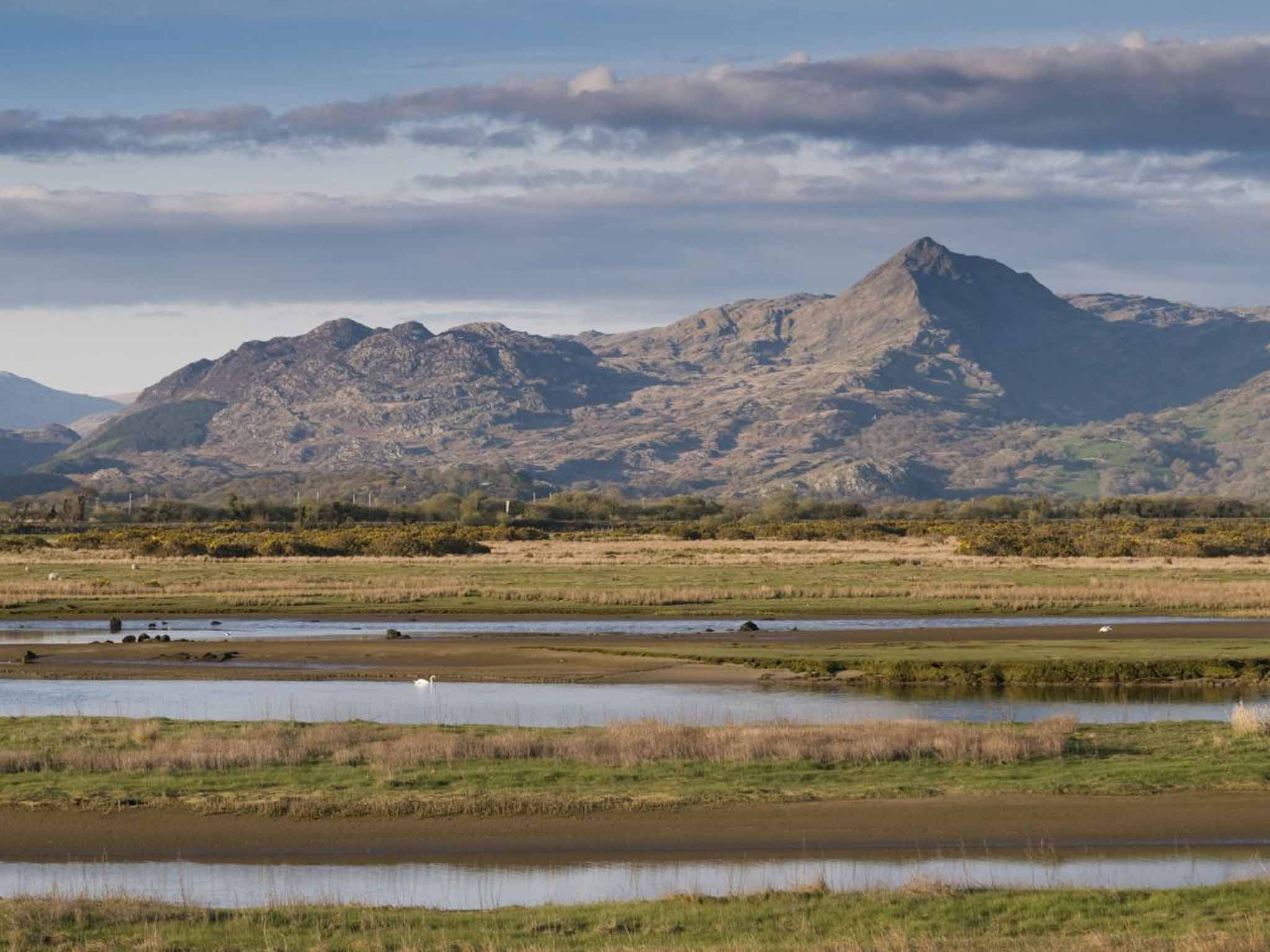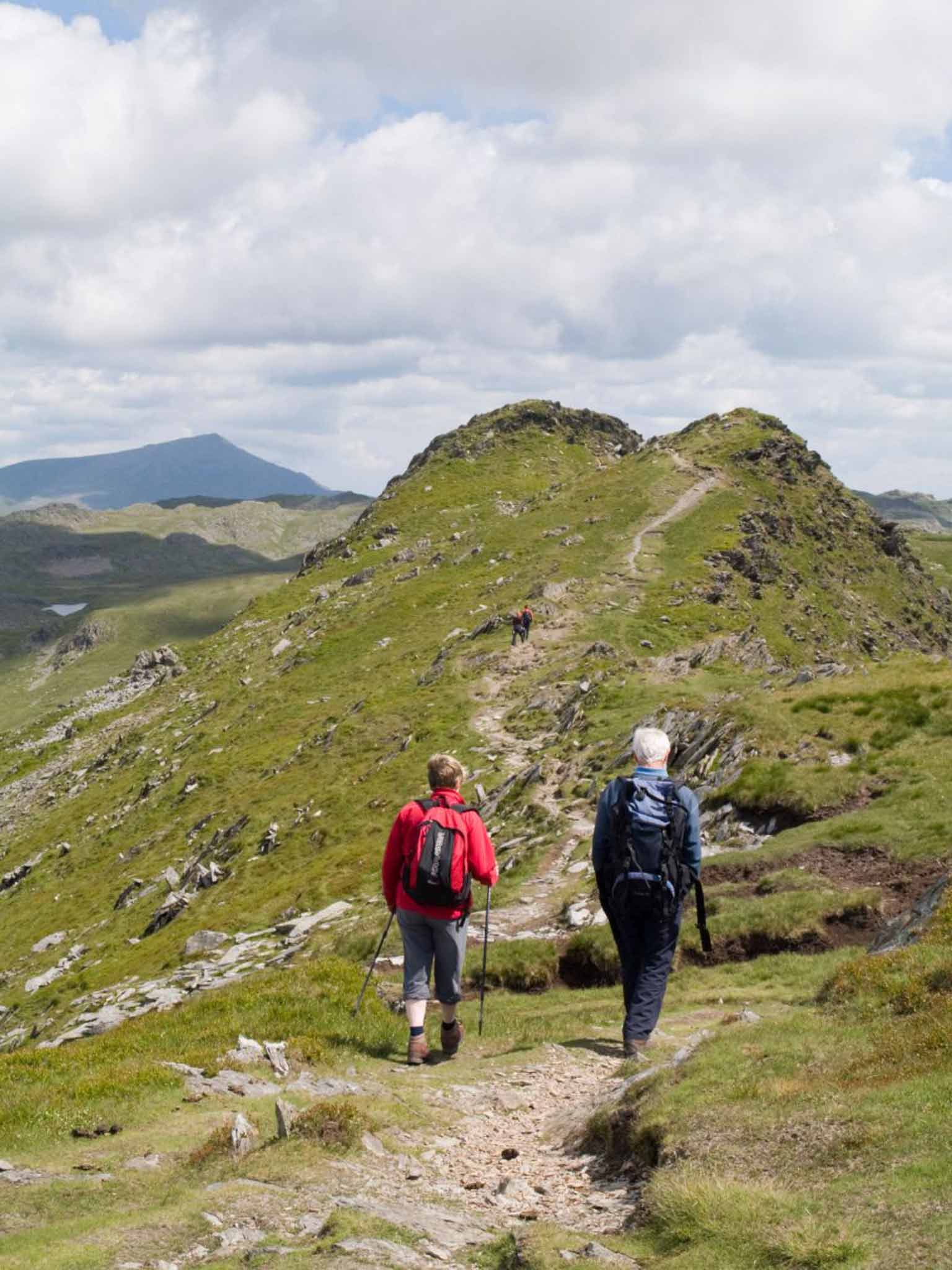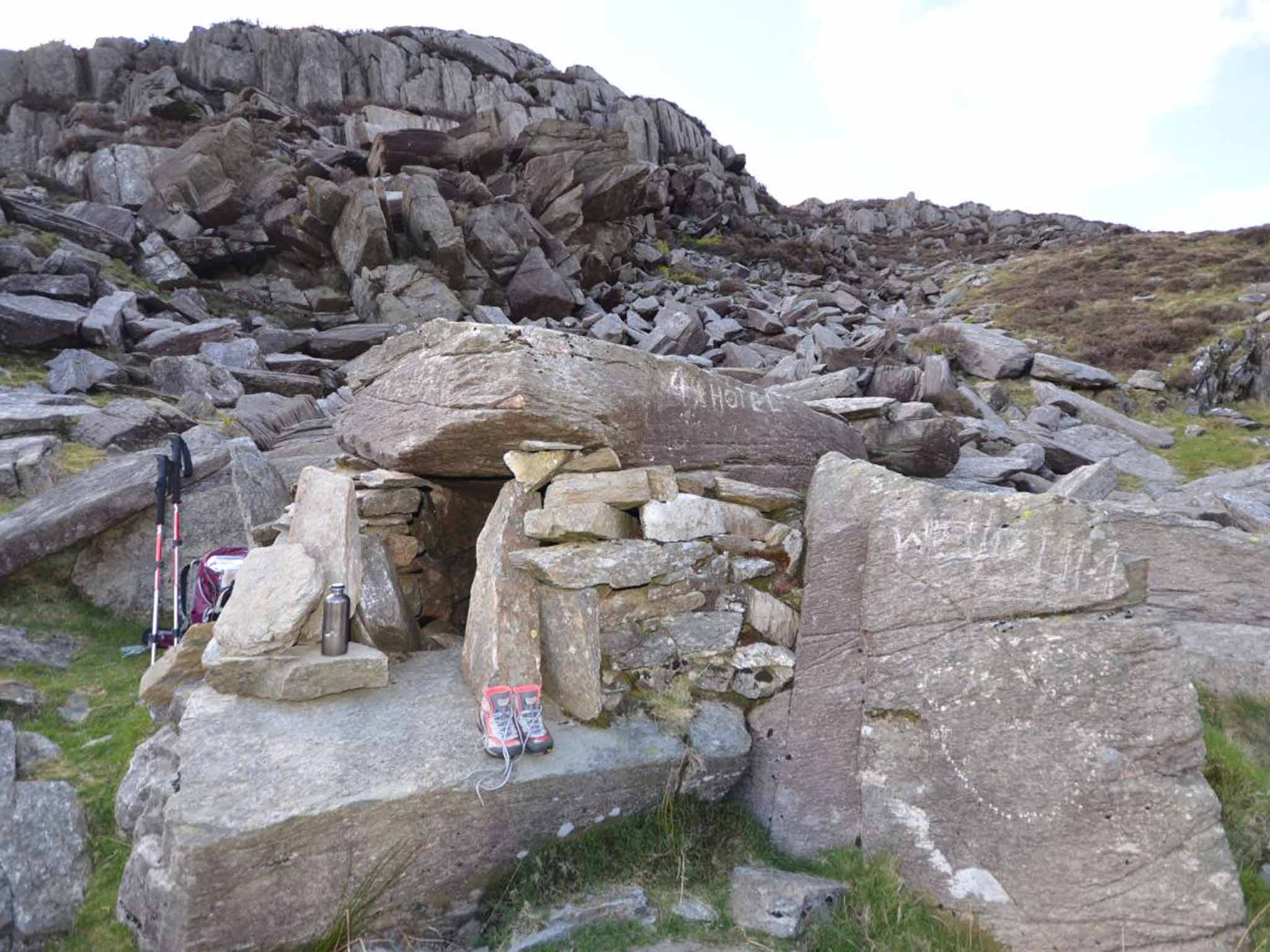The Welsh Matterhorn: Cnicht offers a true taste of the wilderness
To mark 150 years since a British climber made the first ascent of the Matterhorn, Phoebe Smith heads to Cnicht – the smaller Welsh version – and manages to conquer the mountain in time to be back at her desk on Monday morning

Your support helps us to tell the story
From reproductive rights to climate change to Big Tech, The Independent is on the ground when the story is developing. Whether it's investigating the financials of Elon Musk's pro-Trump PAC or producing our latest documentary, 'The A Word', which shines a light on the American women fighting for reproductive rights, we know how important it is to parse out the facts from the messaging.
At such a critical moment in US history, we need reporters on the ground. Your donation allows us to keep sending journalists to speak to both sides of the story.
The Independent is trusted by Americans across the entire political spectrum. And unlike many other quality news outlets, we choose not to lock Americans out of our reporting and analysis with paywalls. We believe quality journalism should be available to everyone, paid for by those who can afford it.
Your support makes all the difference.The rock feels cold beneath my fingertips. As I curl my hands around the stone, made smooth by the many others that have gripped it before me, I can smell the damp and earthy scent of wet grass. I take a deep breath and heave myself upwards… the summit is within my grasp.
This is the Matterhorn. But not the Matterhorn as you may know it. Say the name of the pyramidal Alpine mountain and, quite rightly, most will picture the shapely and sheer rock face of the Italian/Swiss mountain that rises tooth-like above Zermatt and the Aosta Valley. To reach its summit takes months of training, specialist mountaineering equipment and a qualified guide.
A century and a half after British climber Edward Whymper made the first ascent, climbing the Matterhorn is high on the bucket list of many an adventure seeker. But what about the rest of us – those with full-time jobs and responsibilities who lack the time to obtain the skill level required? Well, there is another option and it's much closer to home.

Tucked within North Wales's Moelwynion Mountains and rising beacon-like above the small hamlet of Croesor, is Cnicht – known by locals as the Welsh Matterhorn because of its deceptively dramatic silhouette when seen from the south-west. Yawning skyward to the tune of 689m (2,260ft, and versus its namesake's whopping 4,478m), it certainly is lacking in the height department, but that doesn't mean it's lacking in excitement. So it is that I pack myself off to Snowdonia early on a Saturday morning to enjoy my own weekend expedition.
Winding my way on the narrow road that leads to Croesor, I pick out Cnicht instantly; its pointed summit stands out among the rounded bumps of the neighbouring peaks.
From the car park in the village I follow the path up towards the hill trail, glad to feel the rocky track under my boot tread after hours spent on the road, pleased to hear the wind rustling leaves instead of tunes from my car radio. I begin heading uphill almost instantly, the mountain rising ahead, beckoning me towards it. Soon, another less obvious track intercepts mine, and I take it, veering away from the route to the top; I won't be summiting this evening. It isn't that I don't have time – the climb itself can be done in just a couple of hours – but I want to savour my foray into this wild corner of Wales and linger a little longer.
To climb the real Matterhorn requires a stay in the Hornli Hut, a mountain refuge that offers a bed and breakfast for those making a summit bid. Cnicht might not have a catered hut, but to the west of the peak, among a collection of splintered and weather-beaten boulders, beyond a small patch of water, is a cluster of rocks that have fallen in such a way that they create a small cavern, perfect for an overnight stop. I follow a stream to reach it, the water gurgling happily beside me, and emerge beneath the rocks.
The entrance is hidden, save for the hand drawn "4-star Hotel" sign someone has written on a stone outside. I peer inside to find it empty. Taking off my backpack I crawl inside to claim my bed – a huge slab of rock, perfect for my camping mat.
Half an hour later, snuggled up in my sleeping bag and firing up my stove in the entrance to the little stone cave, I watch the tantalising mini-mountain fade into the darkness as the sun sinks below the horizon and the stars begin to pinprick the sky.
I wake early, stirred by the sound of birds. I peek outside to see a wisp of cloud swirling around Cnicht's summit, adding a sense of drama to my impending climb. I pack quickly, being sure to remove any trace of my visit, eager to be heading uphill before anyone else has woken on this lazy Sunday morning.

Soon, I am striding up the mountain's flanks with only sheep for company. Around the halfway mark, the higher Snowdonia ranges come into view, shrouded in fog. Yet here on my pint-sized peak I am enjoying a mist-free ascent. The path levels out on to a flattened area of grass edged by a cluster of spiky rocks – often referred to as the "football pitch" by walkers. I stop to look down at the valley below, the cave hotel where I slept now just a stony speck.
Between me and the top is a short section of protruding rocks, too steep to walk up without using my hands to steady me. I start up it, the path twisting sharply as it ascends steeply. I begin to feel the way, the rock cold in my grip. It certainly isn't a technical scramble, but I have to focus on every move and concentrate on where I place my hands and feet. My pulse beats loudly in my ears, my breathing becomes slow and deliberate. Minutes later, I top out and walk the last few metres to the summit.
From the top, I sit, looking down both sides of the mountain, to the valley where I'd slept and to the other where the River Croesor slithers down towards Cardigan Bay beyond. It may not have the cachet of climbing the real Matterhorn, but it has encompassed all the elements of a proper adventure – without any of the hardship or expense. Soon, I will leave, head back to the responsibilities of work, where the sounds of the outdoors will be replaced with the clatter of computer keyboards and the chatter of colleagues. But for now I simply pause and take in my surroundings. A true taste of the wilderness in one single weekend.
Phoebe Smith's new book, 'Wilderness Weekends: Wild Adventures in Britain's Rugged Corners', is published by Bradt (£14.99). Readers of 'The Independent' can receive 35 per cent off with the code INDEPENDENT at bradtguides.com. Offer valid until 30 April
Join our commenting forum
Join thought-provoking conversations, follow other Independent readers and see their replies
Comments